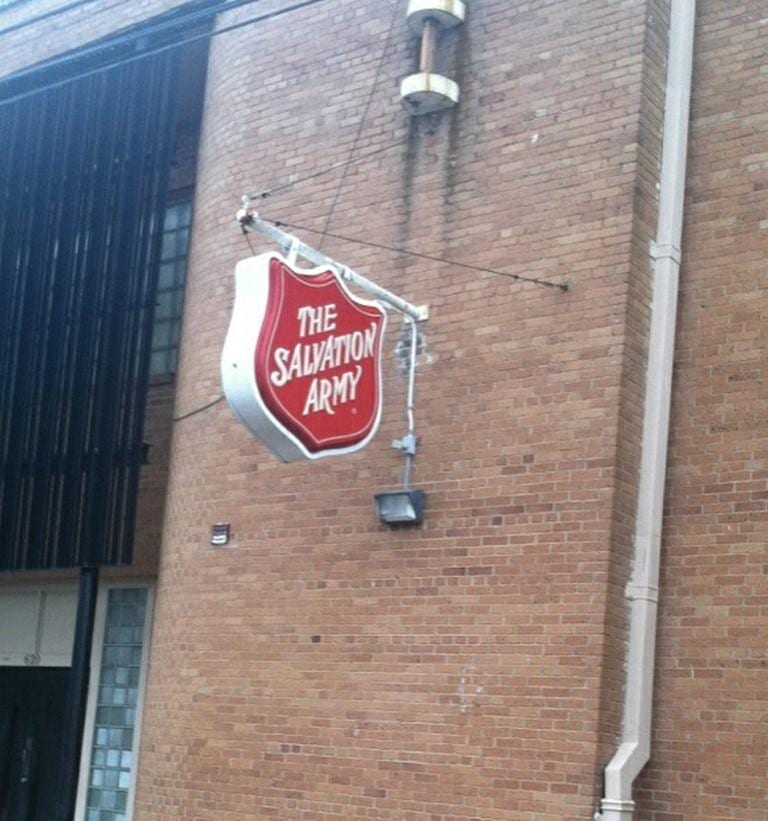By Ronald Cook
As we approach the Christmas season, it might be beneficial to recall those folks who must find another way to walk through life. Time with family, time celebrating life, and time enjoying simple comforts can all be challenged by simple turns of fate in some people’s lives. When this happens, there are cultivated private support organizations that step in to bolster up the lives of homeless citizens. The Salvation Army is one of these supports that is alive and well in Alexandria, Louisiana and many cities throughout the country. I interviewed a man who spent time this summer in a “Tour” of the Army. He shared his experience, gratefulness and lessons learned from this experience.
The Christmas story we are all familiar with includes a journey to a country for a census with a small family. The parents were expecting a child, yet could not find lodging for the night. They were temporarily homeless. They found refuge in a simple manger (which is a small covered spot for animals to find shelter). Today, during Christmas, as well as many other times of the year, people find themselves homeless due to many reasons. Our own Salvation Army participant had never been homeless before in his life. But, due to unforeseen circumstances, he found himself without shelter, broke, and without recourse. He was advised to visit the Salvation Army for help. There he found refuge, support and a way back to his life.
John, our man in the “Army,” accepted a temporary placement due to financial issues, but he found there were many different reasons why men came to this shelter. He met some men who had served jail time for felonies. Their lives had come unraveled as they served their sentences. Wives left, finances disappeared, and jobs became hard to find with a felony record. Some men were recovering addicts who were in rehab programs or some other treatment plan. Many men were disabled veterans who were trying to organize their benefits and ability to put their lives back together. A few men had chosen to become homeless in order to recapture the meaning of their lives in a fresh way. One man had stayed on as a mentor after his month of support.
So … how does the Salvation Army approach the problem of homelessness? Where does it draw the line in helping men? What is the religious aspect of the Salvation part? What are the helps that are offered? These are questions that John had as he embarked on his own “Tour.”
For most people the first images of the Salvation Army might be one of men and women in uniforms marching and singing gospel songs in the street. They may think of a store that sells things to raise money for it’s causes. People might see it as a soup kitchen of sorts. The truth is that some of these images are distorted. The Salvation Army (SA) is actually a very structured, organized, efficient program that emphasizes help, yet plays down guilt or religious influence.
John found that the nuts and bolts of the Salvation Army were in providing temporary support for shelter, food and social services. In order to qualify to stay in the housing section, each person needed to fill out a simple questionnaire with the SA staff. If a man qualifies for a thirty day stay, he is then breath tested. Use of drugs or alcohol is not tolerated. Men may check in after 6 pm in the evening. They must be in the building by 8 pm. If they are late, they can be turned away. If they fail a breath test, they will be turned away. The areas where clients stay are secured and locked after 8 pm. The doors are not locked from the inside, but clients may not leave until 6 am in the morning. If they leave early, they may be barred from returning. No loud or aggressive behavior is tolerated in the rooms or dorms. No smoking is allowed in the housing. Breakfast is served from 6:45 am until 7:00 am. Coming late might get the client a sandwich or box lunch. Dinner is served from 4:45 until 5:00. These are the simple rules. Men are assigned chores each day in the housing areas, as well as the kitchen, which must be done.
There are few religious influences placed upon the residents other than the expectations of good, common sense and respectful behavior. The one main expectation, other than rational behavioral norms, was documented-attendance at the Sunday morning services. These services included hymnals, requests for individual prayer intentions, a bible reading and a talk given by the Major. These talks were geared toward the homeless situation, and delivered hopeful, supportive messages. John enjoyed these services, and did not view these services as indoctrinating or pushy.
Other than shelter and meals, the Salvation Army also required individual meetings with the main staff member in order to plan possible support services. These often included help with housing, veteran benefit support services, job search support and help with things like glasses or simple cell phone acquisition.
The Salvation Army that John encountered gave him shelter, food and support to make the next move in his life. He found the experience humbling as well as life-giving. What happened in the Christmas story and the manger happens every day to people in our world today. It is comforting to know that services and supports like the Salvation Army exist in our lives … and in our town.
Merry Christmas …



























